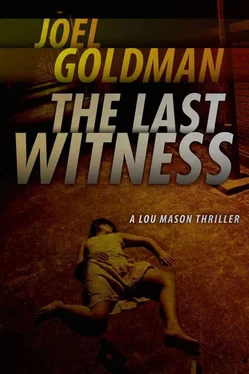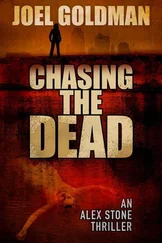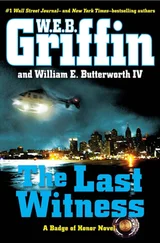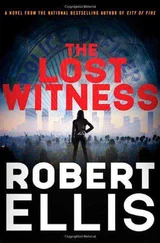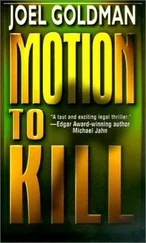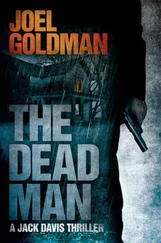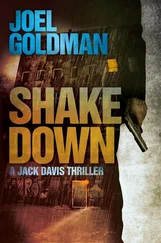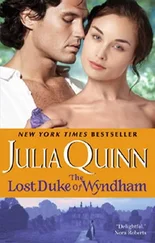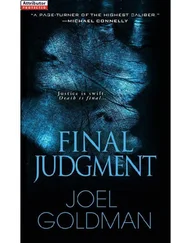Joel Goldman - The last witness
Здесь есть возможность читать онлайн «Joel Goldman - The last witness» весь текст электронной книги совершенно бесплатно (целиком полную версию без сокращений). В некоторых случаях можно слушать аудио, скачать через торрент в формате fb2 и присутствует краткое содержание. Жанр: Триллер, на английском языке. Описание произведения, (предисловие) а так же отзывы посетителей доступны на портале библиотеки ЛибКат.
- Название:The last witness
- Автор:
- Жанр:
- Год:неизвестен
- ISBN:нет данных
- Рейтинг книги:4 / 5. Голосов: 1
-
Избранное:Добавить в избранное
- Отзывы:
-
Ваша оценка:
- 80
- 1
- 2
- 3
- 4
- 5
The last witness: краткое содержание, описание и аннотация
Предлагаем к чтению аннотацию, описание, краткое содержание или предисловие (зависит от того, что написал сам автор книги «The last witness»). Если вы не нашли необходимую информацию о книге — напишите в комментариях, мы постараемся отыскать её.
The last witness — читать онлайн бесплатно полную книгу (весь текст) целиком
Ниже представлен текст книги, разбитый по страницам. Система сохранения места последней прочитанной страницы, позволяет с удобством читать онлайн бесплатно книгу «The last witness», без необходимости каждый раз заново искать на чём Вы остановились. Поставьте закладку, и сможете в любой момент перейти на страницу, на которой закончили чтение.
Интервал:
Закладка:
The first boat in the Kansas City area came to an unincorporated area north of the city. To the surprise of everyone but its owners, the Army Corps of Engineers ordered that the boat remain docked because of the hazards of navigating the Missouri River. With a sigh of regret heard all the way to their banks, the other casinos built their facilities on huge barges, digging moats around them that were fed by rivers to meet the legal requirement that the casinos be riverboats.
The legislative scheme was complex, having been drafted by lawyers with help from the casinos' lobbyists. Like any successful partnership between regulators and those they regulate, the law appeared tough but was actually more malleable than a politician's oath to do what's right.
The Missouri Gaming Commission was established to oversee and regulate all gaming activity. Each city retained the right to issue licenses to casino operators, subject only to the gaming commission's approval of the qualifications of the owners. Rules prohibiting ownership by convicted felons and other unsavory individuals were window dressing to distract attention from the real horse-trading that accompanied the grant of licenses.
The competition for Kansas City's license had been fierce. Four casino operators had expressed interest in obtaining a license from the city. Each put together their own team of local supporters and business partners that had as its singular purpose getting the mayor's blessing. Some had been subtler than others, giving ownership interests to black and Hispanic businessmen who carried a message of diversity and economic opportunity to the mayor. Others offered sizable campaign contributions to the mayor and city councilmen.
Mayor Sunshine announced the appointment of a blue ribbon commission to recommend which of the contenders should receive the sole license Kansas City intended to grant. It was the mayor's way of remaining above the fray and gave him plausible deniability of any effort to influence his decision.
Of equal importance to the selection of the casino operator had been the selection of the site for the casino. Kansas City's river frontage afforded several possible locations, each of them privately owned. The owners of those sites joined in the free-for-all, anguishing over whether to choose between aligning with a particular casino operator and waiting to see if their site was selected. The wrong move could cost them millions.
When all the coalitions and alliances were formed, when all the political contributions were deposited, and when all the promises that would be broken were made, the blue ribbon commission recommended to the mayor that he grant the license to Galaxy Gaming Co.
Galaxy was a publicly traded company with casinos in Las Vegas, Atlantic City, and three other states that had approved riverboat gambling. Galaxy formed a joint venture with three prominent black businessmen and two labor unions whose local presidents were Hispanic. It pledged $250,000 to the Kansas City chapter of Gamblers Anonymous. Galaxy signed a ninety-nine-year ground lease, contingent on getting the license, with the owner of the site the Army Corps of Engineers had designated as its first choice for a 150,000-square-foot floating barge. Three city councilmen and Congressman Delray Shays backed the Galaxy proposal.
The mayor thanked the commission members for their efforts, praised their hard work, and then bestowed the license on Ed Fiora and the Dream Casino. He announced that the casino would be docked at the limestone ledge that had once attracted eighteenth-century traders and trappers to pull in and build the trading post that grew into Kansas City. That site, he noted, was owned by the city and would be leased to the Dream Casino, turning an unproductive historical footnote into a new source of revenue for the city.
The owners of the losing casinos had shrugged their corporate shoulders, accustomed to the game of chance they played in cities throughout the country. A few local investors in the losing companies cried foul, more aggrieved by the loss of the money they were convinced they would have made than by any misplaced sense of civic outrage. In time, they had let the matter drop and gone in search of the next good deal.
Rachel Firestone didn't let the story drop. She dogged the Missouri Gaming Commission, the mayor's office, and the Dream Casino until she found the one thing that tied them all together. Jack Cullan. Cullan had represented Ed Fiora and led the behind-the-scenes efforts to win approval of the Dream's application. Before that, he had been treasurer of Billy Sunshine's two successful campaigns for the office of mayor.
Though she hadn't found evidence of a direct relationship between Cullan and Beth Harrell, she cited highly placed confidential sources intimating that Harrell had been improperly influenced in her decision to approve the license for the Dream Casino.
She traced the flow of money from Ed Fiora to Billy Sunshine. Though her most recent article intimated at a quid pro quo, she fell short of an outright accusation. She quoted the U.S. attorney as not finding sufficient evidence to take the case to the grand jury, making it sound as if he was part of the cover-up.
Trying to find a connection between Cullan's murder and the Dream Casino reminded Mason of a game of three-card monte. The game was a con, not a game of chance or skill.
The dealer dealt three cards, one of which was the ace of spades. The dealer then turned the cards facedown, and the gambler bet that he could keep track of the ace as the dealer shuffled the three cards at lightning speed. When the dealer finished shuffling, the gambler pointed to the card he believed was the ace. If the dealer wanted the gambler to win a small pot and keep playing until he lost a big one, the dealer would let the gambler win. The trick was to distract the gambler while the cards were being shuffled so that the dealer could replace the ace with another card, hiding the ace in his clothes.
The dealer worked with a partner who bumped the gambler, offered him a drink, or otherwise pulled his attention away from the dealer just for an instant. Mason looked at the notes on his board, the newspaper stories, and the police report. He wondered who was hiding the ace of spades and who was trying to keep him from finding it.
CHAPTER NINETEEN
Claire Mason had practiced law by herself for thirty years, waging battles for those who had no one else to fight for them. Whether her battles were hopeless or hopeful, she won enough of them to keep going.
Many of the bedrock businesses and institutions in town had been her target at one time or another. One of her favorite tactics was to buy a single share of stock in a company just so she could attend the shareholders' annual meeting. During the question-and-answer session, she would ask the CEO if he preferred that she just file a class-action lawsuit against the company since he was obviously too busy to return her phone calls.
She was seated when Mason arrived for lunch, her heavy winter coat draped across an empty chair. It was dark olive, impervious to nature's elements, and looked as if it were designed for a Prussian Cossack, a sharp contrast to his navy pinstripe suit, white shirt, and red-and-navy-striped tie.
"You look like you're dressed for a job interview," she told him as he sat down.
"Interview, not job interview. I need to talk to the mayor about Jack Cullan. His staff won't work me into his schedule, so I'm going to work him into mine."
"When God said let there be light, he didn't mean Billy Sunshine."
"Not one of your favorite politicians?"
"Favorite politician is an oxymoron. Billy Sunshine has the distinction of being both an oxymoron and a regular moron."
"I take it you didn't vote for him."
Читать дальшеИнтервал:
Закладка:
Похожие книги на «The last witness»
Представляем Вашему вниманию похожие книги на «The last witness» списком для выбора. Мы отобрали схожую по названию и смыслу литературу в надежде предоставить читателям больше вариантов отыскать новые, интересные, ещё непрочитанные произведения.
Обсуждение, отзывы о книге «The last witness» и просто собственные мнения читателей. Оставьте ваши комментарии, напишите, что Вы думаете о произведении, его смысле или главных героях. Укажите что конкретно понравилось, а что нет, и почему Вы так считаете.
